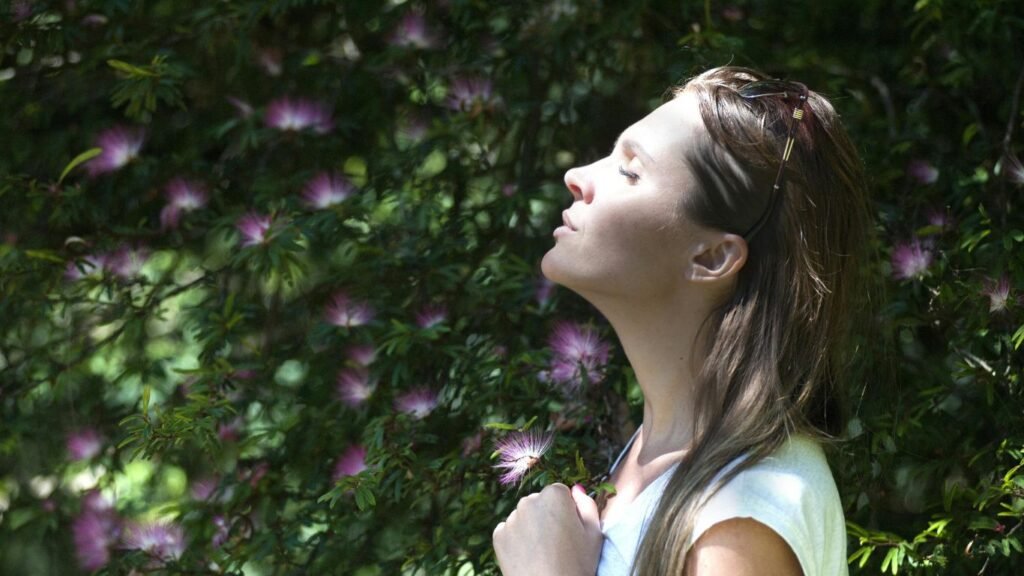In today’s fast-paced world, stress has become an unwelcome companion in our daily lives. While medication can provide quick relief, many people seek natural alternatives. This comprehensive guide will explore ten effective strategies on how to reduce stress naturally without medication, offering you a holistic approach to achieving a more balanced and peaceful life.
Understanding Stress: The Body’s Response
Before delving into natural stress reduction techniques, it’s crucial to understand what stress is and how it affects your body. Stress is your body’s response to physical, emotional, or mental pressures. When stressed, your body releases hormones like cortisol and adrenaline, preparing you for a “fight or flight” response.
While short-term stress can be beneficial, chronic stress can lead to various health problems, including high blood pressure, heart disease, weakened immune system, sleep disturbances, anxiety, and depression. Recognizing the signs of chronic stress is the first step in learning how to reduce stress naturally without medication.
1. Mindfulness and Meditation: Grounding Yourself in the Present
Mindfulness and meditation are powerful tools for managing stress naturally without medication. These practices help you focus on the present moment, reducing anxiety about the future or regrets about the past.
How to practice mindfulness to reduce stress naturally without medication:
- Find a quiet space where you won’t be disturbed.
- Sit comfortably and focus on your breathing.
- Notice any thoughts or feelings that arise, then gently return your attention to your breath.
- Start with 10 minutes daily, gradually increasing to 15-30 minutes as you become more comfortable.
Remember, mindfulness isn’t limited to formal meditation. You can practice it while eating, walking, or even washing dishes. The key is to stay present and aware of your surroundings and sensations.
2. Exercise: Move to Reduce Stress Naturally
Physical activity is a natural stress-buster and an excellent way to reduce stress without medication. When you exercise, your body releases endorphins, which are chemicals that help improve mood and reduce stress.
How to incorporate exercise into your routine to reduce stress naturally without medication:
- Aim for at least 150 minutes of moderate aerobic activity or 75 minutes of vigorous activity per week.
- Choose activities you enjoy, such as yoga, dancing, hiking, or swimming.
- If you’re short on time, even a brisk 10-15 minute walk can help lift your spirits and reduce stress.
- Consider incorporating moving meditation practices like yoga or tai chi, which combine physical activity with mindfulness.
3. Nutrition: Fuel Your Body for Stress Resilience
What you eat plays a significant role in how well your body copes with stress. A balanced diet rich in whole foods can help your body withstand the effects of stress more effectively, reducing the need for medication.

Stress-busting foods to include in your diet for natural stress reduction:
- Omega-3 rich foods: Salmon, flaxseeds, and walnuts
- Magnesium-rich foods: Leafy greens, nuts, seeds, and legumes
- B-vitamin rich foods: Spinach, eggs, and whole grains
- Complex carbohydrates: Whole grains, fruits, and vegetables
- Probiotic-rich foods: Yogurt, kefir, and fermented vegetables
Stress-reducing nutritional tips to reduce stress naturally without medication:
- Minimize your intake of processed foods, caffeine, and sugar, as these can exacerbate stress and anxiety.
- Eat regular, balanced meals to maintain stable blood sugar levels throughout the day.
- Practice mindful eating by paying attention to your food and eating slowly.
- Stay hydrated by drinking plenty of water throughout the day.
4. Get Enough Sleep: Recharge Your Mind and Body
Quality sleep is essential for stress management and is a crucial component of how to reduce stress naturally without medication. Sleep deprivation can increase cortisol levels, leading to irritability and reduced ability to cope with stress.
Tips for improving sleep quality to reduce stress naturally:
- Maintain a consistent sleep schedule, even on weekends.
- Create a relaxing bedtime routine, such as reading or taking a warm bath.
- Make your bedroom a sleep-friendly environment: cool, dark, and quiet.
- Avoid screens (phones, laptops, TVs) at least an hour before bedtime.
- Try progressive muscle relaxation to release physical tension before sleep.
5. Breathing Exercises: Activate the Relaxation Response
Deep breathing exercises can quickly activate your body’s relaxation response, countering the effects of stress without the need for medication.
Simple breathing exercise for natural stress relief:
- Find a comfortable position, sitting or lying down.
- Place one hand on your belly and the other on your chest.
- Breathe in deeply through your nose for four counts, feeling your belly rise.
- Hold your breath for a count of four.
- Exhale slowly through your mouth for a count of six.
- Repeat this process for 5-10 minutes, focusing on the rhythm of your breath.

6. Social Connections: Don’t Go It Alone
Strong social connections can significantly reduce stress and are an essential component of how to reduce stress naturally without medication. Talking with friends, family, or a support group can provide perspective and emotional relief.
Ways to strengthen your social connections for natural stress reduction:
- Schedule regular meetups with friends and family, either in person or virtually.
- Join clubs or classes to meet like-minded people and build a sense of community.
- Volunteer for local organizations to connect with others while making a positive impact.
- Utilize technology to stay connected with loved ones who live far away.
- Consider seeking help from a counselor or therapist if you’re feeling overwhelmed.
7. Journaling: Unburden Your Mind
Writing down your thoughts and feelings can help you process emotions and identify stress patterns, making it an effective tool for reducing stress naturally without medication.
How to start journaling for natural stress relief:
- Set aside 10-15 minutes each day to write about what’s on your mind.
- Don’t worry about grammar or structure—just let your thoughts flow.
- Use your journal to process stressful events and brainstorm solutions.
- Consider incorporating a gratitude practice by listing things you’re thankful for each day.
8. Nature Therapy: Find Calm in the Outdoors
Spending time in nature has been shown to lower cortisol levels, reduce anxiety, and improve overall well-being, making it an excellent strategy for reducing stress naturally without medication.
Ways to incorporate nature into your routine for natural stress reduction:
- Take regular walks in a park, forest, or along the beach.
- Engage in outdoor activities like gardening or hiking.
- Bring nature indoors by adding houseplants or nature-inspired artwork to your home or office.
- Practice mindfulness outdoors by focusing on the sights, sounds, and smells of nature.
9. Limit Caffeine and Alcohol: Balance Your Nervous System
While caffeine and alcohol might seem like quick fixes for stress, they can actually exacerbate the problem in the long run. Managing your intake of these substances is an important part of reducing stress naturally without medication.
How to manage your intake for natural stress reduction:
- Limit caffeine consumption to 1-2 cups of coffee or tea per day.
- Opt for herbal teas like chamomile, peppermint, or lavender as soothing alternatives.
- If you drink alcohol, do so in moderation: no more than one drink per day for women, two for men.
- Be mindful of how caffeine and alcohol affect your sleep and overall stress levels.
10. Set Boundaries and Learn to Say No
Overcommitment is a common source of stress. Learning to set boundaries and say no to non-essential commitments can significantly reduce your stress levels without the need for medication.
How to set boundaries for natural stress reduction:
- Review your schedule and identify areas where you can cut back.
- Practice assertive communication to clearly express your limits without guilt.
- Prioritize activities that align with your personal goals and values.
- Learn to delegate tasks when possible, both at work and in your personal life.
Conclusion: Building a Life of Balance and Calm
Reducing stress naturally without medication is not only possible but also sustainable in the long term. By incorporating these strategies into your daily life, you can build resilience and create a more balanced, peaceful existence. Remember, small steps can lead to significant changes. Start with one or two techniques that resonate with you and gradually incorporate others as you build your stress-management toolkit.
Here are some final tips to help you on your journey to reduce stress naturally without medication:
- Be patient with yourself. Developing new habits takes time and practice.
- Customize these strategies to fit your lifestyle and preferences.
- Regularly assess your stress levels and adjust your approach as needed.
- Celebrate small victories in your stress-reduction efforts.
- Remember that it’s okay to seek professional help if you’re struggling to manage stress on your own.
By taking care of your mind and body through mindfulness, exercise, proper nutrition, quality sleep, and strong social connections, you’ll be better equipped to handle life’s challenges. Stress may be inevitable, but with these natural strategies, you can learn to manage it effectively and lead a healthier, more fulfilling life without relying on medication.
Embrace these natural methods for reducing stress, and you’ll likely find that you can navigate life’s ups and downs with greater ease and resilience. Remember, the goal isn’t to eliminate stress entirely, but to develop healthy ways to cope with it. With practice and persistence, you can master the art of how to reduce stress naturally without medication, paving the way for a more balanced and joyful life.
References
- American Psychological Association. (2019). Stress effects on the body. Retrieved from https://www.apa.org/topics/stress/body
- Harvard Health Publishing. (2020). Understanding the stress response. Harvard Medical School. Retrieved from https://www.health.harvard.edu/staying-healthy/understanding-the-stress-response
- Goyal, M., Singh, S., Sibinga, E. M., et al. (2014). Meditation programs for psychological stress and well-being: a systematic review and meta-analysis. JAMA Internal Medicine, 174(3), 357-368.
- Anderson, E., & Shivakumar, G. (2013). Effects of exercise and physical activity on anxiety. Frontiers in Psychiatry, 4, 27.
- Selhub, E. (2020). Nutritional psychiatry: Your brain on food. Harvard Health Publishing. Retrieved from https://www.health.harvard.edu/blog/nutritional-psychiatry-your-brain-on-food-201511168626
- National Sleep Foundation. (2020). How sleep affects your immunity. Retrieved from https://www.sleepfoundation.org/articles/how-sleep-affects-your-immunity
- Perciavalle, V., Blandini, M., Fecarotta, P., et al. (2017). The role of deep breathing on stress. Neurological Sciences, 38(3), 451-458.
- Umberson, D., & Montez, J. K. (2010). Social relationships and health: a flashpoint for health policy. Journal of Health and Social Behavior, 51 Suppl(Suppl), S54-S66.
- Smyth, J. M., Johnson, J. A., Auer, B. J., et al. (2018). Online Positive Affect Journaling in the Improvement of Mental Distress and Well-Being in General Medical Patients With Elevated Anxiety Symptoms: A Preliminary Randomized Controlled Trial. JMIR Mental Health, 5(4), e11290.
- Bratman, G. N., Anderson, C. B., Berman, M. G., et al. (2019). Nature and mental health: An ecosystem service perspective. Science Advances, 5(7), eaax0903.
- Richards, G., & Smith, A. P. (2015). A Review of Energy Drinks and Mental Health, with a Focus on Stress, Anxiety, and Depression. Journal of Caffeine Research, 5(1), 1-12.
- Khoury, L., Tang, Y. L., Bradley, B., Cubells, J. F., & Ressler, K. J. (2010). Substance use, childhood traumatic experience, and Posttraumatic Stress Disorder in an urban civilian population. Depression and Anxiety, 27(12), 1077-1086.
- Rubin, G. (2015). Better Than Before: Mastering the Habits of Our Everyday Lives. Crown Publishers.




